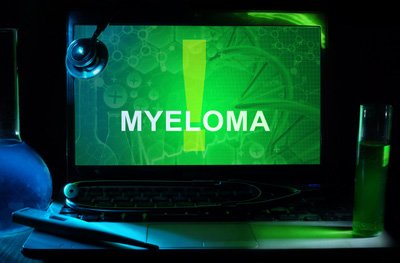Myeloma UK and the SGC in first-of-its-kind collaboration
Posted: 27 January 2016 | Victoria White | No comments yet
Myeloma UK and the SGC have entered into an open-access research partnership to discover drug targets for myeloma using structural biology and chemical proteomics…


Myeloma UK and the Structural Genomics Consortium (SGC) have entered into an open-access research partnership to discover drug targets for myeloma using structural biology and chemical proteomics.
Myeloma UK and the SGC have explicitly agreed not to file for patents on any of the collaborative research and to make all reagents and knowledge available without restriction to the wider research community, including pharmaceutical, biotech, and academic research groups.
As part of the collaboration, Myeloma UK will support scientists at the SGC to generate biology data and open access research tools to explore potential drug targets, as well as link Myeloma UK clinical and pre-clinical experts into the SGC’s open access network. This project reinforces the early-stage component of the Myeloma UK research pipeline, which extends into Phase II/b clinical trials.
Commenting on the collaboration, Myeloma UK Chief Executive Eric Low said, “Our entire business model at Myeloma UK is designed to accelerate the research that is most likely to result in patient benefit.
“We understand that the one important way to do so is through openly sharing early stage discoveries so we can crowdsource the best minds and the best research resources in the world for this mission – a model championed and efficiently proven by the Structural Genomics Consortium. We are also fully aware that by sharing our data and tools we can help and learn from diseases and this is how we will, together, speed up the rate of progress towards more effective treatments for myeloma patients.”
Myeloma UK and the SGC will make tools freely available without restriction
Myeloma UK and the SGC will make any research tools developed freely available to the research community immediately and without restriction. Since no patent protection will be taken on any of the results of this collaboration, any investigator in the world will have complete freedom to use the data to advance science and the discovery of new medicines.
“We applaud Myeloma UK’s strategic decision to enforce unrestricted sharing of research tools and results which will surely accelerate the understanding of underlying disease biology”, said Aled Edwards, CEO of the SGC. “By combining Myeloma UK’s own data with the outputs from our other genetic studies supported by Genome Canada, Wellcome Trust and EU’s Innovative Medicines Initiatives, we hope to identify and enable discovery of novel targets for multiple myeloma.”
Related topics
Drug Targets, Genomics, Oncology
Related conditions
Myeloma
Related organisations
Myeloma UK, Structural Genomics Consortium (SGC)



